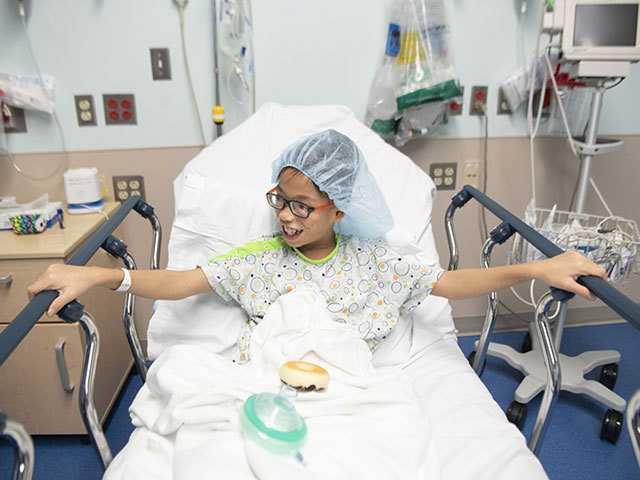Helping you prepare

What to expect
Surgery can be frightening for children and parents. Preparing your child for surgery can make the experience more manageable. Here are some suggestions to prepare yourself and your child for the surgery:
- Take a pre-surgery tour.
- Talk honestly with your child about what will happen. If you are unsure how to talk to your child about surgery, the person who schedules your tour may be able to help you with ideas. Discuss what you saw and did on the pre-surgery tour.
- Listen to your child’s concerns about surgery. Encourage older children to make their own list of questions they have for surgery day.
- Remind your child that he or she will come home and that you will be with them as much as possible while they are at the hospital or surgery center.
- Ask the surgery team questions. This will help you understand what your child will experience.
Find a Pediatric Anesthesiologist
Our experienced pediatric doctors and specialists are ready to serve you and your family.
Patient care journey
Before surgery
Before surgery, the anesthesiologist will come visit you and your child. They will determine the best option for providing your child with anesthesia. The decision will be based on a variety of factors that may include age, size, health and family history. There are two different ways the medicine may be administered:
- One option is through an IV. This option is usually used for older children and teenagers. An IV involves a poke with a small needle that places a soft tube into a vein on your child’s hand or arm. The doctor will inject medication into the IV tubing to help your child go to sleep for surgery.
- Another possibility involves the use of a mask. This option is most often used with infants and small children. The doctor will allow your child to breathe anesthesia through a soft mask placed over their nose and mouth. If a mask is used, your child may still have an IV placed after they are asleep.
Sometimes it may be helpful for a parent to accompany their child into the operating room. The anesthesiologist will use his or her best judgment as to whether or not it is appropriate or safe for a parent to be present in the operating room for the induction of anesthesia.
During surgery
If you need to leave the waiting room at any time, please let the waiting room staff know where you will be. At the end of surgery, your doctor will join you to discuss the surgery and your child’s condition. Your child will be moved to the recovery room to begin waking up.
After surgery
Following surgery, parents/guardians are invited into the recovery room once your child is awake and stable. Only two parents/guardians are allowed in this area for the safety of your child. The nurses will closely monitor your child as he or she wakes up. Every child is different; some wake up quickly, while others can take awhile.
